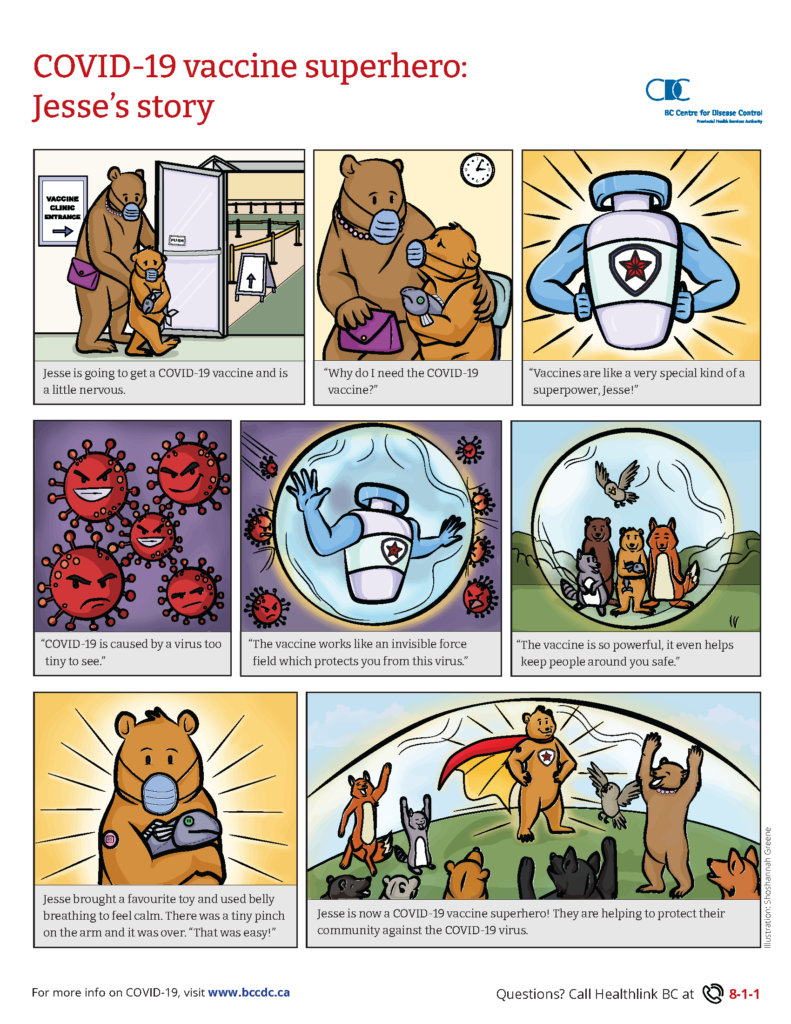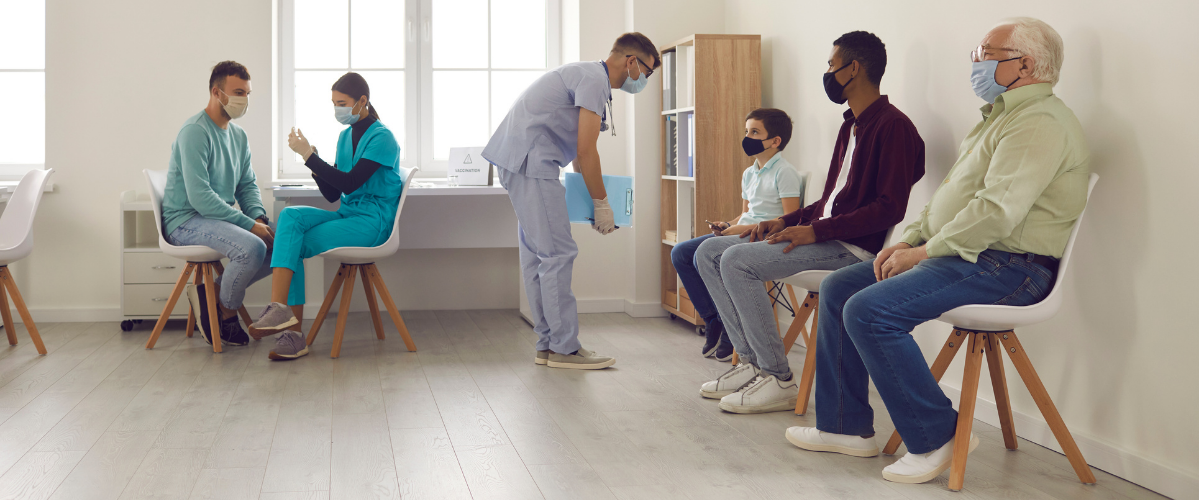As we began a new year—our second in this COVID-19 world—we found ourselves also entering a new, difficult phase in our pandemic.
In late November 2021, a new SARS-CoV-2 variant arose, and was quite quickly classified as a Variant of Concern (VOC), Omicron.
In the last two months, Omicron has spread rapidly across the world, and in BC in the last few weeks, we’ve seen a rapid increase in cases, significant community transmission, and rates of hospitalization not seen before in the pandemic.
Omicron is more transmissible and is putting great strain on our acute care and public health systems. It is causing alarm for many parents and those with loved ones in long-term care, it is impacting businesses as people are having to take time off, surgeries are being cancelled, and it is probably safe to say that for most of us, it is challenging our resolve.
Omicron is different, that is clear. What has not changed is that vaccination is still incredibly protective, and important.
We know that vaccination reduces severity of disease and hospitalizations for many, and that those who are unvaccinated are more likely to experience severe disease, need hospitalization, and ultimately succumb to the disease.
While it is true that people who are vaccinated are contracting COVID-19, it is in part due to sheer numbers—the more of our population who are vaccinated, the more the virus can be transmitted to vaccinated people. That doesn’t mean vaccines don’t work. Quite the opposite: vaccines remain our strongest tool in our COVID-19 toolkit.
Omicron is also being touted as ‘mild.’ While this may be true for some, when rates of transmission are so high it is misleading and not accurate when we think about those who are more vulnerable, and when we think about the strain on our healthcare system and all the incredible and exhausted workers continuing to save lives everyday.
Therefore, we must continue to think beyond ourselves; it is during this wave that it is more important than ever that we think about why we use our layers of protection—for our loved ones, our communities, and our society.
Though Omicron is causing a great deal of uncertainty as we scramble to learn quickly, pivot to remote work, and keep our loved ones safe, for example, what remains consistent is that we know vaccination works to protect people, and again, it has, and will continue to be, the strongest tool in our COVID-19 toolkit. And while Omicron is impacting people who have been vaccinated, it is offering protection from hospitalizations and death—and this is absolutely critical at this time in the pandemic.
Did you know that early data suggests vaccinated people are 60-70% less likely to need hospital care? And though much is still to be learned, the addition of a booster dose provides over 80% more protection. Further, early studies from other parts of the world a bit further ahead in their wave suggest that there is a lower risk of transmission from people who have been vaccinated versus unvaccinated people.
Activate Health is about our individual actions and the positive impact we can make on the health of our population. One of the clearest Activate Health messages we’ve had since COVID-19 vaccines became available, and one of the clearest ways we can each, as individuals, protect the health and safety of the population, is through vaccination. This was true before COVID-19; this will remain true after COVID-19.
Here are some ways you can Activate Health:
-
If you haven’t gotten your first or second dose yet, consider it now. Encourage everyone you know to do the same. If you’re ready for a booster, book as soon as you get your invite. Help your friends, family, neighbours, and community get vaccinated. If you know anyone who is wavering or wants more information, help them with reputable, evidence-based resources, guidance, encouragement, and support.
-
Get your eligible kids vaccinated. Make getting vaccinated cool and exciting, and help quell any fears they may have around needles, for example. Teach them how getting vaccinated protects loved ones, classmates, teachers, friends, and those who can’t protect themselves. Here are some resources for both you and your child(ren) that you might find helpful:
– Video: “Should I get my child vaccinated?“
– BCCDC information and ImmunizeBC FAQs on COVID-19 and vaccines for kids
– Sign up for ScienceUpFirst’s Kids & Vaccines Town Hall on January 27th (National Kids & Vaccines Day)
– Check out our website for fun, printable downloads your kid(s) can engage with and colour

-
Think about what vaccine equity means. To end this pandemic, we must vaccinate the world. Not doing so continues to put us all at risk, and the risk of new variants arising remains high. There is extreme inequity in vaccination between the developed and developing worlds. No one is protected until we’re all protected.
-
Omicron is showing us we still need to learn, and we still need evidence, especially as new variants arise and new vaccination programs are unrolled. Support critical research such as vaccine effectiveness work, that provides the evidence for our leaders and decision-makers to make the decisions that keep us all safe, and will help us get to the other side of the pandemic.
- Continue to maintain all layers of protection, like wearing masks and avoiding large gatherings—do all you can to minimize exposure and transmission. The message about it being mild isn’t the message we need to endorse—the sheer number of cases means that it’s extremely risky no matter what—that is the key message, in conjunction with an encouragement for, and reaffirmation of, vaccination.
No doubt 2022 is a new year bringing new challenges, but let’s have it be our last year that starts like this. Let’s Activate Health to end this year in a much different and better way than it began.
